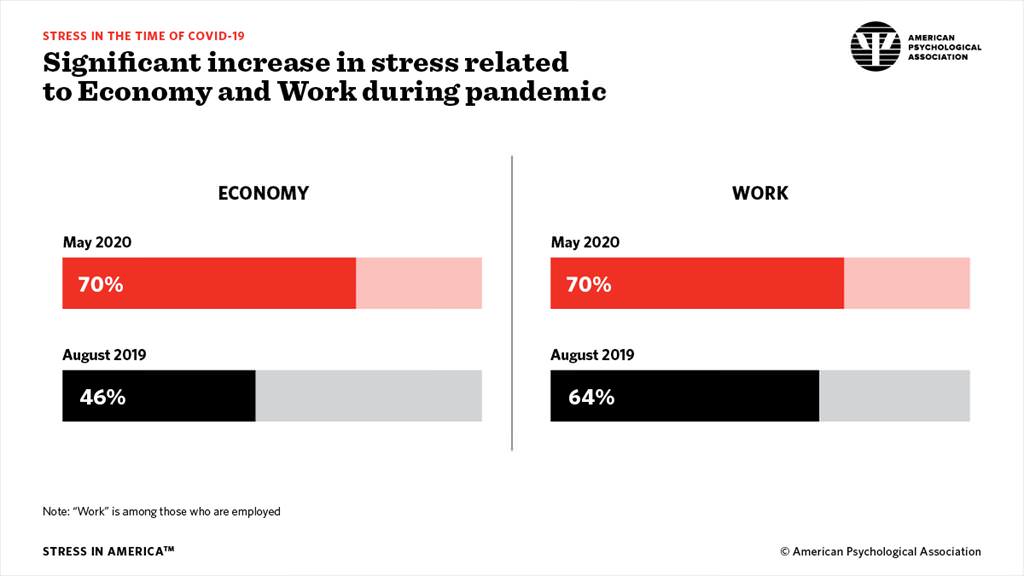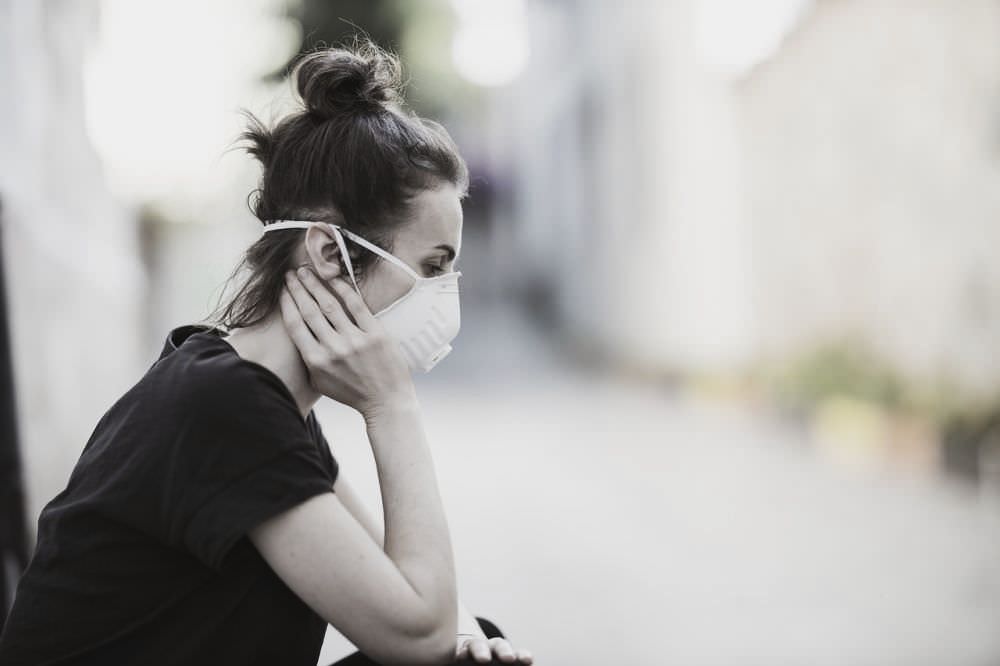Your body knows how to respond to a dire need or threat. This is why it develops stress each time it’s in a stressful situation – whether real or imagined. Your body’s defenses respond to a potentially threatening situation ‘to protect you’ in no time. But, chronic activation of this response is known to impair physical and mental health. To understand ‘how to deal with stress,’ you need to understand the triggers as well as ways to avoid them. In this post, we are going to discuss exactly that.
In this article
Tips and suggestions to deal with stress
The biological stress was first discovered in the late 1950s by Hans Selye, an endocrinologist. It was his ‘stress theory’ that first established the relationship between stress and diseases. His discoveries have helped millions of people all over the world in coping with stress.
Listed below are some of the best tips to deal with stress:
Eat right: Stress levels and dietary habits are closely related.
Be mindful: From simple breathing exercises to yoga, meditation, tai chi, and Pilates, you can choose an activity you like the most to develop ‘mindfulness.’
Exercise: You do not have to train for a marathon or practice powerlifting at the gym; even a simple walk around the office/home can provide relief from stress and associated symptoms.
Sleep well: Lack of sleep or poor sleep quality can cause stress or worsen an existing mental health issue. Avoid watching TV or surfing the Internet before you hit the bed. Give yourself some time to relax before going to bed each night.
Listen to music: You can take a break and listen to soothing music when you feel overwhelmed. Playing calm music can help reduce cortisol – a hormone associated with stress.
Acceptance: There will always be some events, situations, or people you cannot change. Learn to accept in order to improve your ability to handle stress.
Get your rest: Fatigue can increase stress by making you think irrationally.
| Also Read: Relationship between food and stress
Current scenario (Coronavirus COVID-19) and stress
We are in the midst of a worldwide pandemic with cities and countries on a total shutdown. We know there is no cure or vaccine for the COVID-19 disease. This realization alone can push one to the wall.
Some are living in areas where the novel Coronavirus has spread its wings, others are bracing for it may come. All are connected to news trying to stay abreast of happenings around.
For many people, an uncertain future is the hardest thing to handle. After all, we really do not know how bad or worse things could get from here. Be it health, employment, finances, or anything else – nobody knows what is coming next.
This is why numerous health organizations such as the WHO and government agencies such as the CDC have been advising people on how to manage stress and anxiety during the COVID-19 pandemic.
According to a survey report published by the American Journal of Managed Care (AJMC), almost 70% of the participants said that the COVID-19 pandemic is “the most stressful time of their lives.”
The reasons for stress during an infectious outbreak may include the following:
- Fear/worry about your own health and that of your loved ones
- Changes in working, sleeping, and eating patterns
- Concerns about economic issues
- Disruption in regular medical care/community services
- Social isolation for an extended duration
- Increased consumption of alcohol, tobacco, and drugs
Different times call for different reactions.
Everyone responds differently to stressful times, depending on backgrounds, experiences, and other factors that differentiate a person from another.
High chances of stress may be found among the elderly with chronic diseases, children and teens, people on the frontlines such as doctors, nurses, paramedics, police officers, etc. People with existing mental health problems and history of drug abuse are also at greater risk of developing stress-related symptoms during the pandemic.
How to deal with stress in the Coronavirus COVID-19 world
Experts believe that while facing a challenge like the current pandemic, stress is a normal reaction. Stress is in fact useful in a way; it alerts us to prepare against possible danger.
However, stress also triggers a biological response that prepares the human body for either ‘brawl’ or ‘departure’. Symptoms of stress can easily wreak havoc. Cognitive symptoms such as anxious or racing thoughts, poor judgment, difficulty remembering things, etc., emotional symptoms such as loneliness, anxiety, agitation, depression, irritability, feeling overwhelmed, etc., and physical symptoms such as nausea, dizziness, aches, chest pain, frequent cold flu, constipation, diarrhea, etc. can turn your life upside down.
During the COVID-19 pandemic, staying abreast with the latest information is important but sensational news updates can also result in fear and anxiety. Constant monitoring of news or social media updates can quickly turn compulsive and counterproductive. It may fuel anxiety rather than easing it.
Therefore, you should stay informed on advisories issued b local authorities, safety precautions, etc. but avoid obsessively checking news all the time.
During the pandemic, concerns such as ‘what if I lose my job,’ ‘how will I bring livelihood for my family,’ ‘my loved one is not well’, etc will naturally haunt your mind.
Among other things, the pandemic has resulted in large-scale unemployment all over the United States. Starting at an unpredictable future is difficult. But as long as you focus on queries with no certain answers and circumstances that are completely beyond your control, you are at the risk of developing stress and anxiety.
While the possibilities emerging from the pandemic will sure sound scary, being proactive in such a situation can be relieving. Therefore, divert your mind or rather focus on things you CAN control. For instance, you cannot control the Coronavirus outbreak in your neighborhood but you can always take measures to protect yourself and your family members.
Following COVID-19 safety precautions will help you feel in control and reduce the possibility of developing stress.
The most important precautions include washing your hands frequently (for at least 20 seconds) with soap and water or a hand sanitizer that contains at least 60% alcohol, avoiding touching your face (particularly your eyes, nose, and mouth), staying home as much as possible, even if you don’t feel sick, avoiding crowds and gatherings of 10 or more people, avoiding all non-essential shopping and travel and keeping 2 meters of distance between yourself and others when out.
Some suggest that penning down about specific worries that you feel may disrupt your life can be helpful. Make a list and jot down all possible solutions. Try not getting too adamant to note the most perfect options, rather put down everything that comes to your mind to help you go through it.
Management gurus also term this method as ‘SWOT’ analysis of the situation at hand.
‘SWOT ‘means Strength, Weaknesses, Opportunities, and Threats.
After having evaluated all four, try creating a plan of action or a strategy. It is advisable to be prepared and keep it aside until you actually need the plan/strategy to work or if the situation changes drastically.
Related Story: Walk While You Work On Walkolution Treadmill + Desk
Achieving the desire for certainty and control is easier said than done.
If you notice that feelings are turning negative, grounding yourself can be a good option. A full brake on all activities can help you remain protected from negative thoughts and feelings until the rational mind takes over.
Another factor adding to stress during the COVID-19 pandemic is physical isolation. The best thing we can do to cut the chain of the virus is to practice social distancing.
Worldwide studies point that humans are social animals. Isolation and loneliness can lead to anxiety and depression. So, it is a good idea to stay connected with family and friends. Since in-person visits are not possible these days, you can stick to face-to-face video chats.
Emotions are contagious; so, be wise about who to turn for support. Everyone in the world needs advice or a sympathetic ear at times. But choosing the right sounding board for this need is a matter of judgment. Look for people in your life who are good listeners and unbiased.
Summing it up, practice the ‘4A’ for stress management – Avoid, Alter, Adapt, and Accept.
When handling such situations one can either change the situation or change the reaction.
Though it is not healthy to avoid stressful situations, one may be surprised to note the number of stressful situations in life which can be eliminated from life by just avoiding them.
It is pertinent to know your limit to handle, whether in personal or professional life.
Taking up more than one can handle will only serve as a recipe for added stress. So, learn to say ‘no.’
Some places or people consistently cause stress. Limit the time you spend with them or if possible, end such relationships.
The environment makes a big difference. You have to take control of it. For example, if traffic jams give you anxiety, take a longer but less-traveled route.
Analyze your daily schedules, responsibilities, etc. If there is too much for you to handle in a day/week, drop low-priority tasks from your routine.
Next, try to alter the situation. If you cannot change the stressful situation, try to alter it.
Be assertive and communicative about concerns in a respectful way. Don’t just bottle up feelings inside. Be willing to compromise. Besides mostly asking others to change their behavior, you should be willing to do the same, if needed. In fact, by bending a little one can find a fair chance of finding a happy, stress-free ground. Work on a schedule for a balanced life.
Try to see the stressful situation with a more positive perspective.
For instance, someone who has just been laid off can use the time to learn a new skill or complete an online course.
Lastly, accept things that you cannot change. There is no point fretting over something you or nobody else can change.
How to deal with stress while working from home

According to a 2017 study conducted by the United Nations, people who work from home report higher levels of stress. This may come as a shock to many people who assume the work-from-home lifestyle to be less stressful as one (apparently) has more freedom to manage their time.
Greater reliance on laptops, smartphones, etc. is associated with higher levels of stress and anxiety. Therefore, when you are not working, it is advisable to reduce screen time as much as possible.
Increased social isolation can be stressful for people who like going out, meeting friends, chatting up with neighbors, etc.
Yes, there would be no obnoxious coworkers, nasty gossips, complaints, etc. to disturb your peace of mind but a complete lack of social interactions can also make you feel lonely and depressed.
So, it is a good idea to chat up with friends and co-workers (you share a bond with) digitally.
Often, unproductiveness can be a catalyst to stress while working from home. Since there’s no fixed work-shift and no one from across the hall is waiting for an update, you may give in to distractions too easily.
Start planning your day by creating a to-do list; this should ideally be the first thing you in the morning when you log in to your work email or dashboard. A fully completed to-do list is a great stress-reliever. A to-do list will also help you manage time between professional work and daily household chores.
When you work from home, your supervisor may presume you to be ‘available’ all through the day. Therefore, setting boundaries is important. You can mutually decide on a fixed timeframe you are available for a phone call or video conference with team members. A series of phone calls or work-related messages popping up on your laptop just when you are helping kids start with their day, for instance, can be stressful.
How to maintain work-life balance while working from home
It can be challenging, especially if you have suddenly become a remote worker due to the ongoing novel Coronavirus pandemic.
When you think of work-life balance, try not to fix the number of hours that you should be spending on work and personal life. This isn’t the right way to be in harmony.
First, you need to let go of perfection. There may not be a printer, scanner, whiteboard, file folder, or high-speed Internet at home for you to smoothly complete your daily tasks. You need be mentally ready to adapt and do the best you can with available resources.
In a work-from-home schedule, you should not be ‘always available.’ This way, your workday will never end.
Completely dissociate yourself from work during the morning, evening, and when you have your meals.
It is okay to politely refuse to be on some conference calls or ask someone to wait for an update until you are on your desk again.
Just as you used to leave the office at a fixed time each day and head home, you can now wrap things up each evening and make time for yourself, and your family members.
How to deal with stress at work
According to the American Psychological Association, there has been a “significant increase in stress-related to economy and work” during the COVID-19 pandemic.

Some of the most common sources of stress at work include lack of social support, monotonous work routine, excessive workload, low salary/incentive, lack of opportunities for professional growth, fear of getting fired, conflicting demands, and inability to strike a balance between professional and personal life.
During the COVID-19 pandemic, these sources can become powerful triggers or stressors if you are not careful.
So, make sure to track your stressors by keeping a journal to identify situations that lead to stress and anxiety. When you start recording your thoughts and feelings concerning a situation, how you responded, or how you should have responded, you begin to identify patterns in your stressors and learn how to manage your reactions to them.
When you are battling work-related stress, try not to use fast food, alcohol, drugs, etc. as an escape. You can develop healthier responses to stress.
Later in this post, we have discussed various stress management activities that can help you deal with stress in a healthy way. You need to take time to recharge yourself and learn how to relax. That’s exactly what stress management activities can help you achieve.
At times, you may also need to speak with your supervisor and ask for the resolution of a specific issue. After all, employee (mental) health is closely linked to productivity.
If you are overwhelmed by work-related stress, consider asking a psychologist for help.
Looking after your mental health during the Coronavirus outbreak

Rumors and speculations can significantly exacerbate stress and anxiety. So, be sure to rely on trusted sources on the Coronavirus and the current situation.
Gather information only from official sources such as the CDC, WHO, the European Commission, UNESCO, or your local public health department. This way, you will feel more in control and focus your energy on how to be safe through social distancing, hand-washing, respiratory hygiene, etc.
Self-care during a difficult situation includes focusing more on things that you can control (like practicing hand hygiene) instead of things that you cannot control (like defeating the virus).
Try to maintain a healthy routine as much as possible. Eat healthy meals and get enough sleep on a daily basis. Do things you really enjoy.
You can make one activity a part of your daily routine to prioritize your mental wellbeing. You may consider activities such as walking, cycling, meditating, exercising, etc. Spending even half an hour doing these activities will help you remain calm and have a significant impact on what you think and how you feel.
If you have had mental health issues in the past, you may be in greater need of company and support. You can remain in touch with your family members, friends, and colleagues by telephone, email, social media, or instant messengers.
Do not hesitate to share your concerns with your loved ones; it is okay to vent your fears and frustrations but overall, try to maintain a sense of hope and positive thinking.
Make sure you try to limit exposure to media coverage of the ongoing pandemic.
Constant monitoring of social media feeds and news updates can quickly intensify feelings of distress. So, go ahead and turn off automatic notifications on news and social media apps to take a break from the news.
Lastly, make sure that you also help children cope with stress. The social and emotional wellbeing of children during the pandemic is under threat.
Stress management activities and ideas
Some sources of stress are unavoidable. One cannot change or avoid situations such as the death of a loved one, a national recession, or a pandemic.
During such a time, the best way to cope with stress is to ‘accept.’
Acceptance may be difficult, but in the long run, it’s easier than railing against a situation you cannot change.
Actions that can help in bringing a positive change include exercising, meditation, good eating, etc. Yes, for many people, it can be difficult. For a stressed-out person, the last thing on their mind is to get up and exercise.
But, you should know that physical activity is a huge stress-reliever. One does not have to be an athlete or spend hours to experience the benefits. There’s no dearth of video tutorials on the Internet on how to exercise at home during the pandemic or how to beat the stress by exercising or meditating at home.
Exercise releases ‘endorphins’ that make you feel good; it shall also serve as a valuable distraction from daily worries.
Gradually, fitness can be improved through regular exercise.
Some easy ways to incorporate exercise into your daily routine are using music to dance around, taking your pet for a walk, walking or cycling to the local store, using stairs at home or avoiding elevators, pairing up with exercise partners, and encouraging each other during work out. You can come up with more innovative ways to keep yourself physically active.
Though any form of activity can burn away stress and tensions, rhythmic activities are termed more effective. Some good choices could include walking, running, swimming, cycling, and aerobics. It is advisable to take up something that you already like. This will increase your chances of sticking to the routine.
Another helpful way for getting immediate relief from stress is the relaxation of muscles. Muscles get tensed you are stressed out. It’s a natural biological response of the body. You can help loosen up your muscles by stretching, massage, hot shower bath, or a good night’s sleep. This will help you significantly overcome symptoms of stress.
Keep in mind that good eating cannot be ignored. The relationship between food and stress is now well-known and backed by science. A balanced diet will help you feel better during the COVID-19 pandemic.
Meals should include vegetables, fruits, whole grains, and lean proteins. It is also advisable to never skip meals, as it can put you in a bad mood, which can increase stress.
Related: Alpilean Reviews
Lastly, you can do deep breathing exercises at home. For many people, deep breathing exercises in combination with Yoga and meditation can work like magic in beating stress and anxiety.
Even while in a busy routine, stopping and taking a deep breath can take the pressure off right away. Relaxation techniques such a yoga, meditation, and deep breathing activate the body’s relaxation response, a state of restfulness, opposite to the body’s ‘fight or flight’ response.
Remember that more than a positive and take-charge-approach, you can get rid of stress by taking out ’me’ time. Don’t get so caught up in the hustle-bustle of life that you forget taking out time for your own needs.
Nurturing yourself is a necessity and not a luxury.
Don’t forget to laugh (often) and do something you love at least once a day. Make time for leisure activities as doing something you love helps remove triggers that cause stress.
“Breathe. Let go. And remind yourself that this very moment is the only one you know you have for sure.”
– Oprah Winfrey






